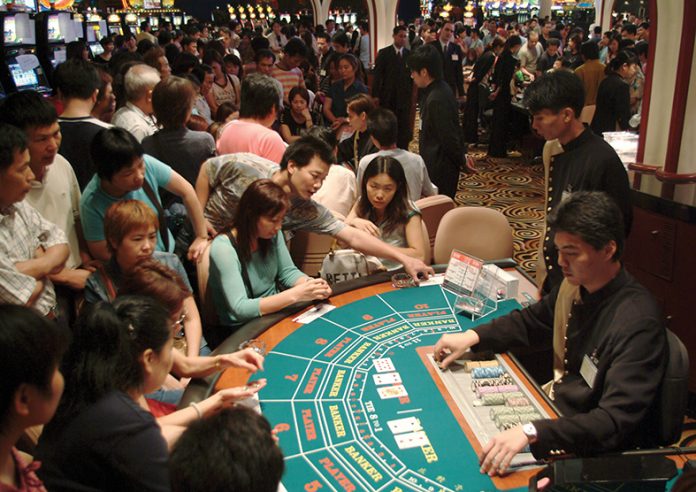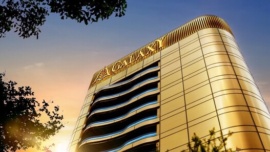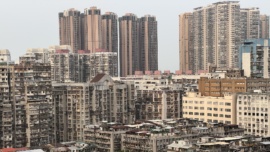Common sense says that the main reason for Chinese tourists to come to Macau is to gamble. But numerous academic studies show the opposite. Is playing at casinos less and less important?
MB October 2020 Special Report | The Chinese Gambler
Macau is the largest gambling market in the world and its revenues are worth at least six times that of Las Vegas, but anyone who reads the research work done by academics, whether based in Macau or not, gets the idea that tourists come to Macau to eat pasteis de nata [egg tarts] or take a look at Saint Paul’s Ruins long before entering a casino.
In fact, there are countless academic works that try to understand what drives mainland Chinese tourists to Macau and none of them ranks casinos first or second.
In some cases, gambling ranks third, but there are situations in which gambling in casinos is the fifth or sixth response of the consulted tourists.
“The primary purposes for visiting Macau are categorized, in order, as follows: sightseeing/culture (27.3 per cent), pleasure (21.6 per cent), gambling (17 per cent), visiting friends and relatives (15.4 per cent), shopping (9.4 per cent), business such as conventions and meetings (8.6 per cent) and honeymoon/wedding (0.9 per cent),” according to the paper Factors affecting the travel expenditure of visitors to Macau, China (2011).
Another example about the most cited tourist motives for visiting Macau, according the paper Macao: The Gambling Paradise—Profiling the Roles and Motives of Customers (2009): sightseeing, cuisine, culture and heritage, shopping, and casino gambling. “Casino gambling, however, came last in the top five motives, which seems to run contrary to a popular belief that casinos should be the biggest attractions motivating tourists to visit Macau,” state Cindia Lam and Lous Vong from the Macao Institute for Tourism Studies (IFTM)
One more: “Although around half of the mainland respondents reported that they undertook gambling activities during their visit to Macau, only 9 per cent cited gambling as their primary purpose of visit,” a team led by Macau Polytechnic Institute Professor Zhonglu Zheng found (2012).
Is that really the case?

Note that we are not calling into question the seriousness of these studies, not least because the problem seems to be different.
On one side, as authors Lam and Vong wrote, “in vindication of such seemingly odd findings, it is necessary to discriminate casino gambling from casino visit. Put simply, those who walk into a casino do not necessarily gamble; they may be there merely for the purpose of sightseeing. As it is, Macau’s scores of flamboyant casinos are unquestionably must-see attractions in this city, and in this sense, a casino visit is likened to sightseeing a tourist landmark. This perspective justified the high ranking of sightseeing when tourists visiting casinos look upon their act as a sightseeing activity rather than with an intention to gamble.”
But on the other hand, as the work of Zhonglu Zheng’s team (To Gamble or Not? Perceptions of Macau Among Mainland Chinese and Hong Kong Visitors, 2012) supports, “it is important to consider the prohibition on gambling within mainland China when interpreting this finding. Respondents may be cautious about revealing their true motives because of concerns about how information provided in response to surveys may be used.” As the authors also wrote, “this is an on-going challenge for the conduct of research into the gambling-related activities of Chinese consumers.” In another study, carried out by researchers at the University of Macau in 2017, we found this caveat: “Since Mainland China requires government approval before residents travel to Macau, the large proportion of Mainland Chinese respondents may have affected the findings regarding gambling frequency.”
“Most visitors to Macau are generally hesitant to claim that they partake in gaming activities” – Bernstein research

The most practical approach on this issue was not found in an academic paper, but in a report by the Bernstein consultancy house: “To identify the key draws of Macau, we asked respondents to specify their top three must-do activities in Macau … Eating in restaurants, sightseeing and shopping were the most attractive activities to do in Macau; while gaming is the key draw for Macau visitors, it is not surprising that this activity ranked only 4th in the survey.” The question is: “Chinese visitors to Macau are serious gamers (even if they fail to truthfully answer survey questions),” says the report summary for Macau Gaming: what are Macau customers telling us? “Most visitors to Macau are generally hesitant to claim that they partake in gaming activities,” Bernstein’s survey also states, adding: “we find that [respondents] tend to minimise the importance of gaming in their answers, which we do not believe reflects the reality of Macau.”
It is also important, as Professor Elisabeth Papineau points out, that “in the People’s Republic of China, gambling is well spread, though viewing the excess of gambling as a medical problem is considered taboo.” And the book ‘Gambling and Problem Gambling among the Chinese’ (YEAR) goes further: “the thought of breaking a moral code (i.e. gambling), especially after perceiving their gambling as being out of control, losing large amounts of money and/or getting into debt, may lead to guilt and shame.”
The importance of these issues goes far beyond the psycho-sociological detail: those findings “raises a question for the relevant authorities: given that Macau is known as Asia’s Las Vegas, should it be positioned exclusively as a gambling destination or as a place of entertainment catering to diverse visitors interested in both gambling and non-gambling activities?” asks the team led by IPM’s Professor Zhonglu Zheng.
MB October 2020 Special Report | See > Fighting the “opium of the 21st century”
























